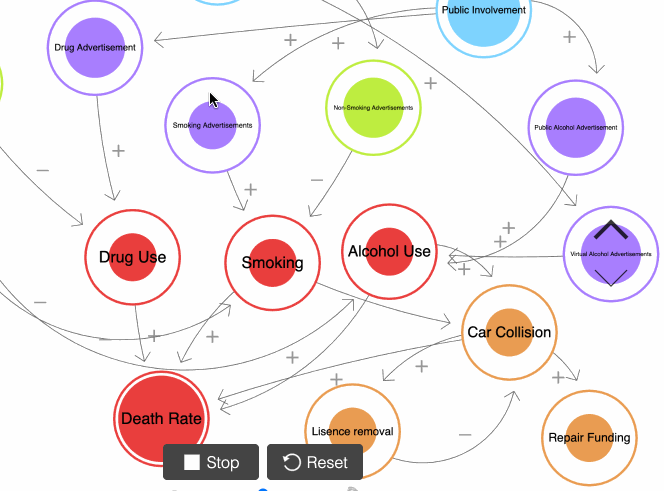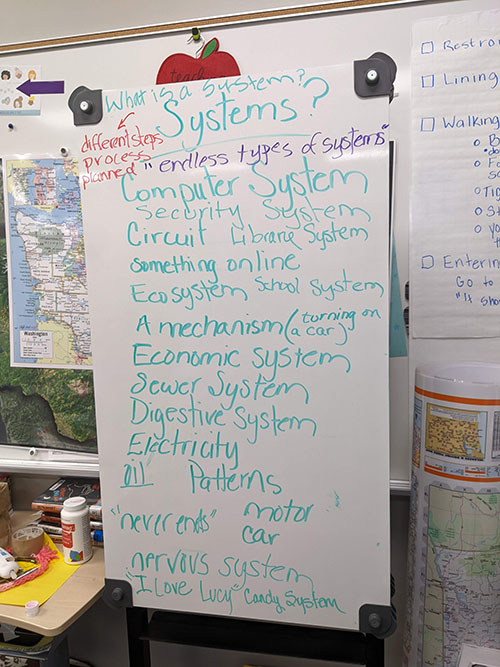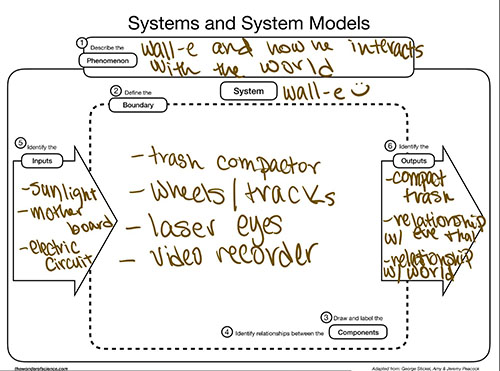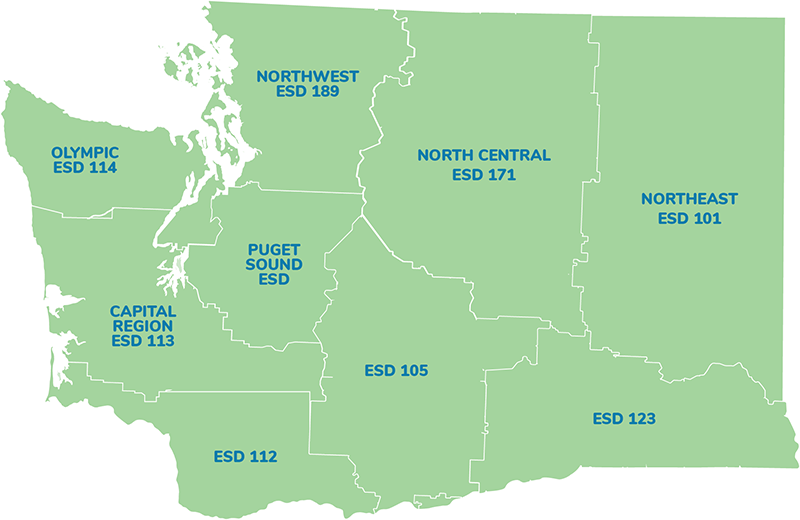Systems are Everywhere!
Exploring Systems in Crosscutting Concepts

Overview
The Systems Are Everywhere! Workshop was developed and led by the Institute for Systems Biology in collaboration with the Puget Sound ESD. The workshop engaged K-12 educators from across the state to explore systems and systems thinking in the context of science education and specifically with the Crosscutting Concept of the Next Generation Science Standards.
What We Did
When the pandemic began in Spring 2020, many WA teachers were searching for resources for the incredible challenge of teaching science online. ISB Education retooled and developed a 4-hour remote workshop, Systems Are Everywhere!, to support K12 educators from across the state to focus on systems, systems models and systems thinking, and application of their learning to address real-world environmental problems/ issues/challenges, including climate change. This workshop allowed teachers to experience best practices as translated for remote learning and supported them to implement specific activities and strategies with their students immediately. As teachers have transitioned back to in person learning for students, much of their professional learning has stayed remote, and this workshop continues to support educators’ evolving needs.
 The workshop guided teachers through a rigorous cycle: new learning to professional learning to classroom action. Teachers began by experiencing learning as students building to the creation of dynamic system models using Loopy. Then, teachers dug deeply into the CCCs and found the ideas of systems in all grade bands and across most if not all of the seven crosscutting concepts. Teachers explored systems thinking skills and considered how STEM professionals use these skills in their work. Teachers then planned classroom action and generated back-pocket questions to prompt students’ thinking about systems in their current units of study. The cycle built teachers’ confidence and supported them to implement new strategies immediately within their own context.
The workshop guided teachers through a rigorous cycle: new learning to professional learning to classroom action. Teachers began by experiencing learning as students building to the creation of dynamic system models using Loopy. Then, teachers dug deeply into the CCCs and found the ideas of systems in all grade bands and across most if not all of the seven crosscutting concepts. Teachers explored systems thinking skills and considered how STEM professionals use these skills in their work. Teachers then planned classroom action and generated back-pocket questions to prompt students’ thinking about systems in their current units of study. The cycle built teachers’ confidence and supported them to implement new strategies immediately within their own context.
Over 600 educators from across Washington state have participated in this workshop since Spring 2020. This year 40 have tried new strategies and/or tools in their classroom and then shared the resulting work from the students along with professional reflections about the impact on student learning.
What We Learned
- Teams of teachers are ideal for both participating in the workshop and implementing new strategies and tools in the classroom.
- Bringing together kindergarten to high school teachers needs careful facilitation, but we leveraged the knowledge of the grade-band groups to help everyone develop a deeper understanding of the K-12 learning progression, specifically of the crosscutting concepts.
Some examples of classroom implementation:
Elementary, Peninsula School District
 Our grade level recently created bristlebots with the Naval yard and learned about circuits earlier this year. A few days after creating the bristlebots I had the students draw a diagram of their bristle bots to think about the parts that made up the whole. Afterwards we discussed what they thought they knew about systems, then responded to the systems list to identify systems, watched the I Love Lucy candy factory clip after a student brought it up as an example of a system (not everyone was familiar) and then completed the systems graphic organizer. To wrap the work up the students responded to questions on a Google Form.
Our grade level recently created bristlebots with the Naval yard and learned about circuits earlier this year. A few days after creating the bristlebots I had the students draw a diagram of their bristle bots to think about the parts that made up the whole. Afterwards we discussed what they thought they knew about systems, then responded to the systems list to identify systems, watched the I Love Lucy candy factory clip after a student brought it up as an example of a system (not everyone was familiar) and then completed the systems graphic organizer. To wrap the work up the students responded to questions on a Google Form.
Middle School, Puyallup School District
 We spent time as a class watching WALL-E. Each day, we stopped and discussed different components of stability, change, and systems. Then, on the final day, we talked about all of the systems we saw in WALL-E. Lastly, I had the students fill out the Systems and System Models worksheet to explain the inputs and outputs of WALL-E’s system.
We spent time as a class watching WALL-E. Each day, we stopped and discussed different components of stability, change, and systems. Then, on the final day, we talked about all of the systems we saw in WALL-E. Lastly, I had the students fill out the Systems and System Models worksheet to explain the inputs and outputs of WALL-E’s system.
They were very good at figuring out the inputs for WALL-E, but it took them a bit to distinguish between the systems of WALL-E vs his outputs.

Project Reach
Teachers
Administrators
Project Partners


Feedback
This was a very successful project! Kids loved it, and were able to work through misconceptions or stuck points.
Teaching this lesson has broadened my awareness of systems and to be aware of including systems thinking in future lessons.
I think it helped them see a relationship between cause and effect along with consequences and how a system can be altered.
Contact
For more information contact:
ISB Education
education@isbscience.org
